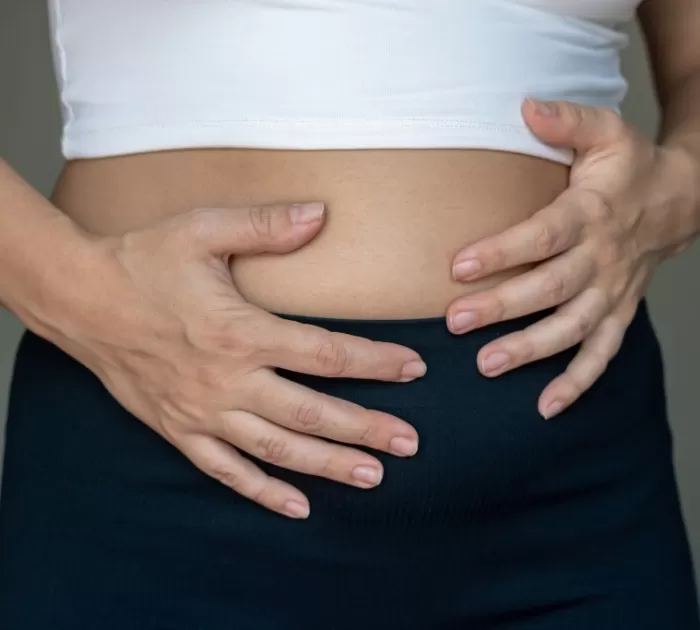Introduction
Bloating and gas are common symptoms experienced during menopause and perimenopause, often caused by hormonal fluctuations. The decline in oestrogen and progesterone levels affects digestion and can slow down the movement of food through the gastrointestinal (GI) tract, leading to bloating and gas buildup. Additionally, oestrogen influences fluid retention, and lower levels can cause the body to retain more water, adding to feelings of bloating.
Other factors such as changes in diet, increased stress, and age-related digestive issues, such as a slower metabolism or decreased muscle tone in the digestive tract, can also contribute to bloating and gas during menopause.

